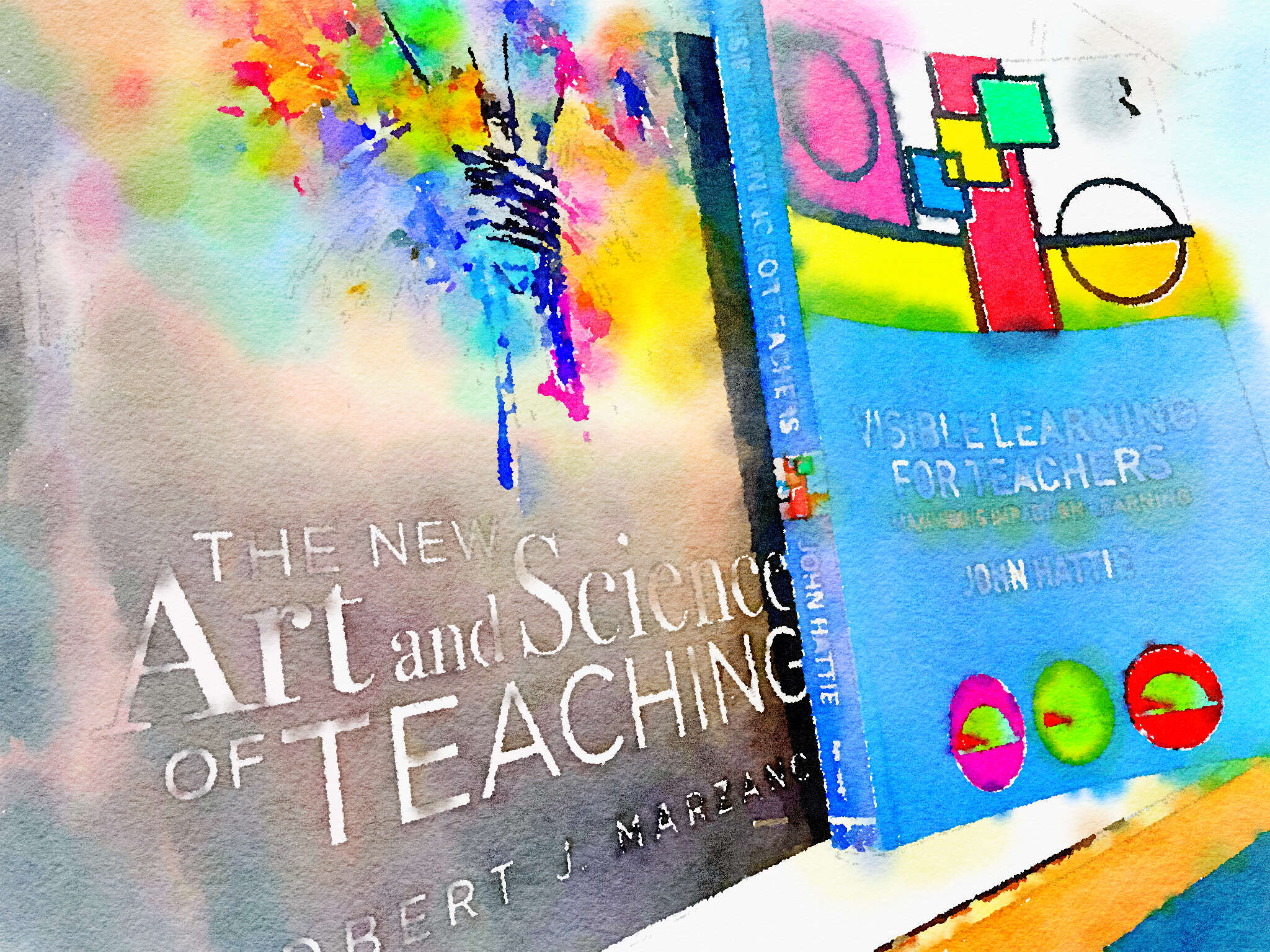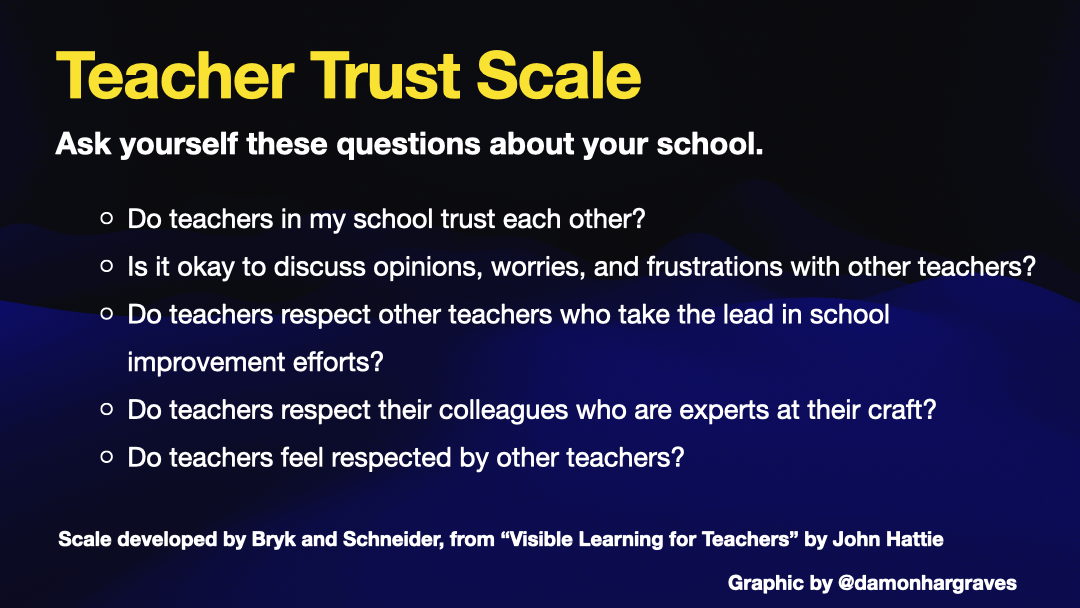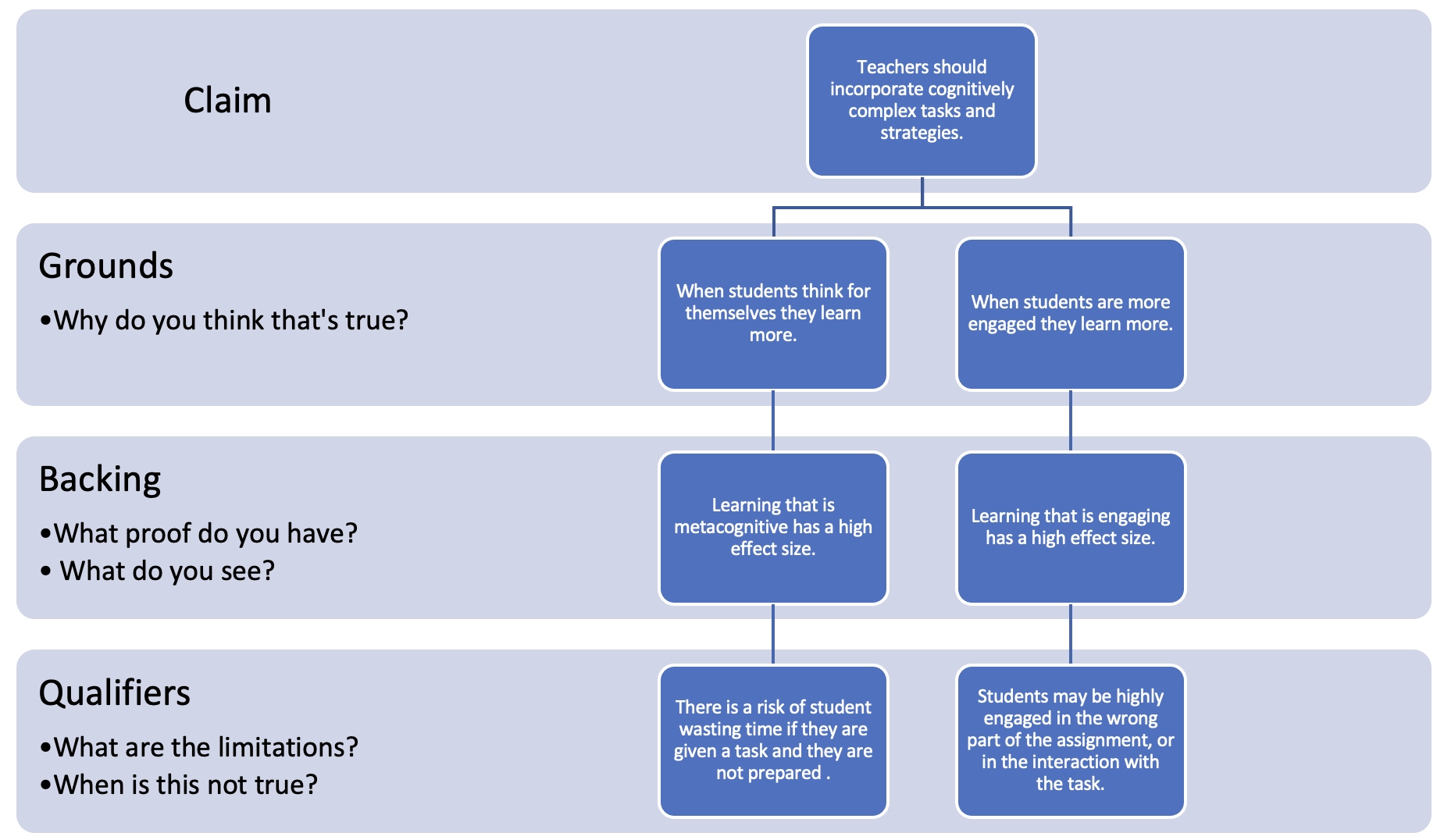This post is published in partial fulfillment of Dr. Sutherland's EDL 755 course at Evangel University.
Notes From Hattie
Chapter 4 Preparing the lesson
You must know where the student is in their learning. Ask, what does the student already know?, before you can start. Accelerate learning for student who are behind.
Aim to add value to all student learning.
Piaget learning stages (p.42)
- Sensorimotor, birth-2 years, learns the relationship between their bodies and their environment, object permanence
- Preoperational, 2-7 years, thinks that the only perspective is their own, thinking is concrete, difficulty with abstract thinking, language skill development
- Concrete operational, 7-12 years, logical thinking emerges
- Formal operational, 12-adult, can think abstractly or hypothetically, can reason through analogy and metaphor
There are critiques. p.43
Like, you can be in more than one stage at a time.
The way we teach may be delaying some student's development. p.44
Rope model of self concept p.44
Self-concept is made up of many different strands, and the strength of self-concept is not in one fiber running throughout the entire length, but rather overlapping strands that layer.
SELF-ATTRIBUTES THAT STUDENTS BRING TO THE LESSON P.44
- Self-efficacy
- strength of self belief that "I can learn"
- Self-handicapping
- when students choose an impediment to enable them to deflect the cause of failure
- Self-motivation
- Is the learning itself a reward, or are perceived secondary rewards the source of satisfaction? Too much external motivation can lead to shallow learning
- Self-goals
- Three types of goals that students can set
- Mastery goals - aim for competence and consider ability to be something that they can develop
- Performance goals - aim to outperform peers, they consider ability to be fixed
- Social goals - students are most concerned about interaction and relations with others in class
- Approach and avoidance
- Self-dependence
- Self-discounting and distortion
- Self-perfectionism
- we procrastinate because conditions are not perfect
- we set our own standards so high that when we do not meet them we view them as a failure
- Hopelessness
- Social comparison
- student in math class excels and is highly confident, but then is sent to the GT class and self concept plummets because the new comparison to his peers is different.
TARGETED LEARNING P.52
Learning intentions
- share learning intentions with students
- not all students will work at the same rate
- curriculum, objectives, and intention are complexly related because learning doesn't happen in a linear way
- learning intentions and activities can be grouped
- learning intentions are when we plan for students to learn, but they might learn other things along the way
- finish lessons by referring back to the learning intention, and help students to see how much closer they are to the success criteria
FOUR MAJOR FACTORS INVOLVED IN TEACHERS' ORIENTATION TO THEIR TEACHING GOALS P.56
- mastery approach - demonstrate superior teaching ability
- ability approach - learn professional understanding
- work avoidance approach - avoid the demonstration of inferior ability
- ability avoidance approach - get through the day with little effort
FIVE COMPONENTS OF LEARNING INTENTIONS AND SUCCESS CRITERIA
- challenge
- commitment
- confidence
- student expectations
- conceptual understanding
Chapter 5 Starting the lesson
Relational trust criteria p.79
- respect
- competence
- personal regard
- integrity
Teacher Trust Scale (Bryk and Schneider)
- Teachers in the school trust each other.
- It's okay in this school to discuss feelings, worries, and frustrations with other teachers.
- Teachers respect other teachers who take the lead in school improvement efforts.
- Teachers at the school respect those colleagues who are expert at their craft.
- Teachers feel respected by other teachers.
Notes from Marzano
Chapter 5 Conducting knowledge application lessons
- Element 12: Engaging Students in Cognitively Complex Tasks
- multiple mental steps
- Element 13: Providing Resources and Guidance
- students seek out advice
- students can explain how the teachers is helping with their project
- students work on complex tasks and make adaptions
- Element 14: Generating and Defending Claims
- generate claims
- provide backing
Structure of an argument
- Claim
- Grounds
- Backing
- Qualifier
- Backing
- Grounds
- Backing
- Qualifier
- Backing
- Grounds


